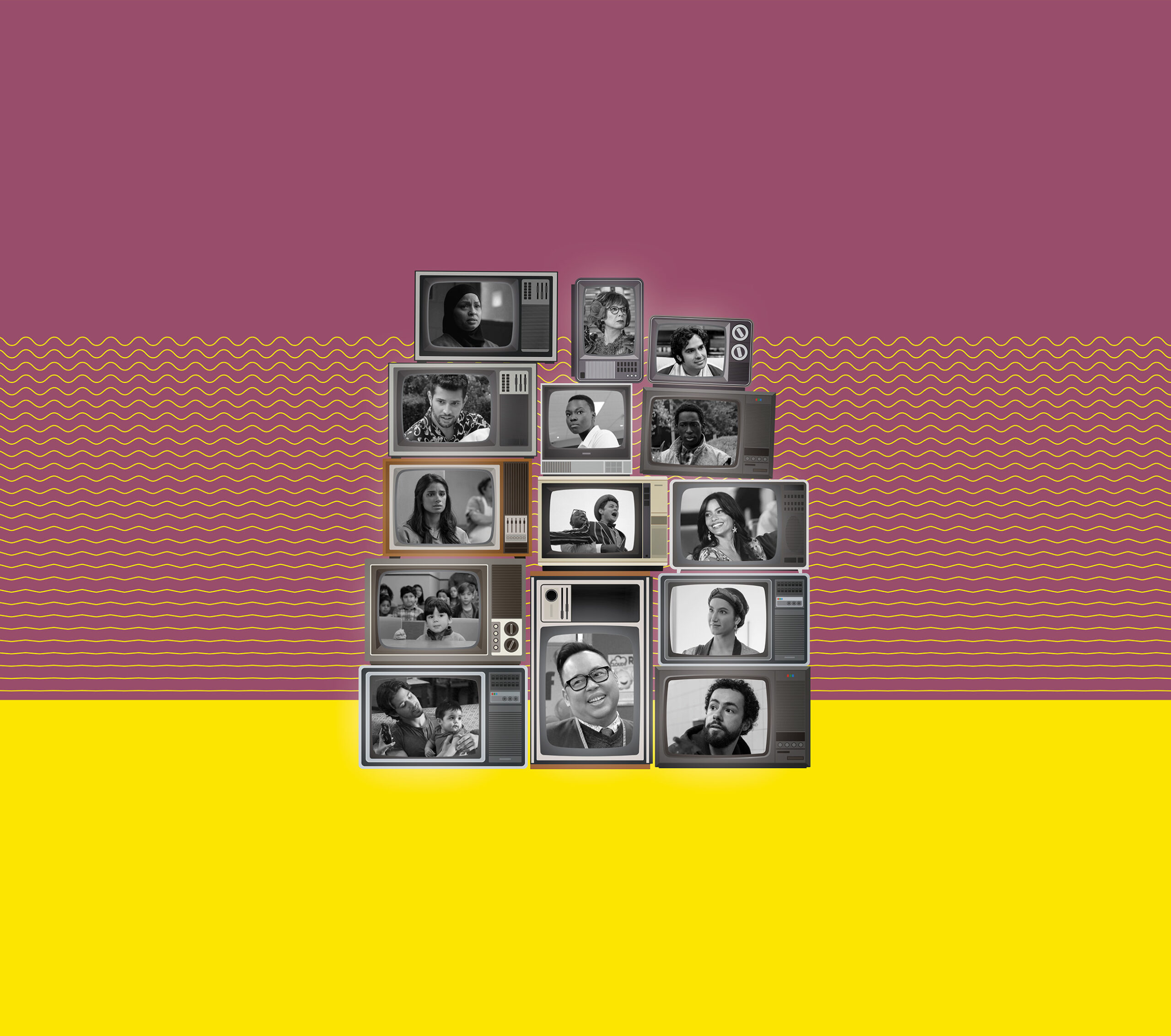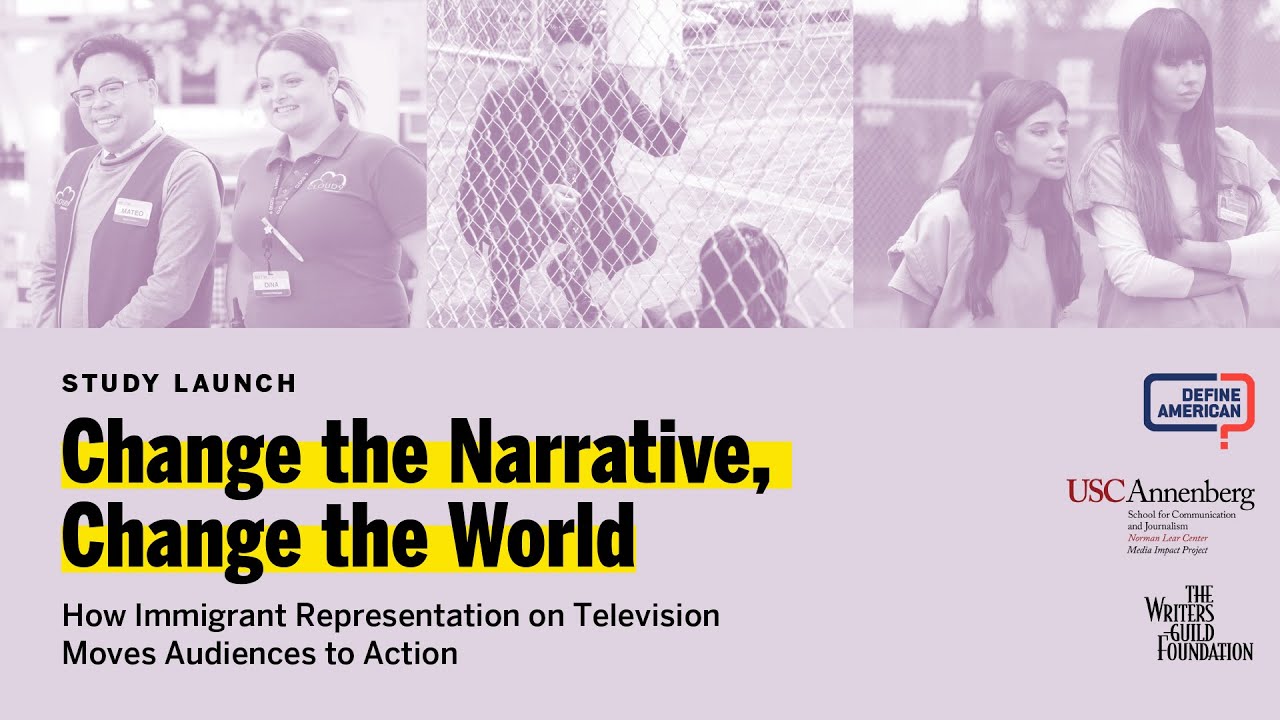Report
September 2020
Change the Narrative, Change the World

Our groundbreaking television research on immigrant representation with the Norman Lear Center is changing storytelling in Hollywood.
Download the reportAbout the report
Define American, along with the Norman Lear Center’s Media Impact Project at USC Annenberg, presents our second annual television impact study: Change the Narrative, Change the World: How Immigrant Representation on Television Moves Audiences to Action.
We looked at the portrayal of immigrant characters on 59 scripted television shows that aired between August 2018 and July 2019 and surveyed viewers on how three immigration storylines changed their willingness to take action in the real world on immigrants’ behalf.

These new data show how the power of storytelling can engage audiences, shift mindsets, and move people into action.
Jose Antonio Vargas, Pulitzer Prize-winning journalist, Emmy-nominated filmmaker, Tony-nominated producer, and founder of Define American
Key findings
There’s still significant work needed to achieve more accurate representation across the entertainment industry:
34%
of immigrants on TV in 2018 were associated with crime.
22%
of immigrants on TV in 2019 were associated with crime.
Immigrants continue to be inaccurately criminalized, reinforcing stereotypes. In reality, immigrants commit less crime and are less likely to be incarcerated than native-born Americans.
12%
of U.S. immigrants on TV are Asian.
26%
of U.S. immigrants in reality are Asian.
Asian immigrants, Black undocumented immigrants, and other marginalized communities continue to be underrepresented on TV.
Contact the team
Research Inquiries
Sarah E. Lowe
Director, Research + Impact
sarah@defineamerican.com
General Entertainment Team Inquiries
Entertainment Partnerships & Advocacy Team
ent@defineamerican.com
Downloads

Television and movies can expand our minds and expose us to people and experiences we may not have access to in real life.
Erica Rosenthal, Norman Lear Center Director of Research
